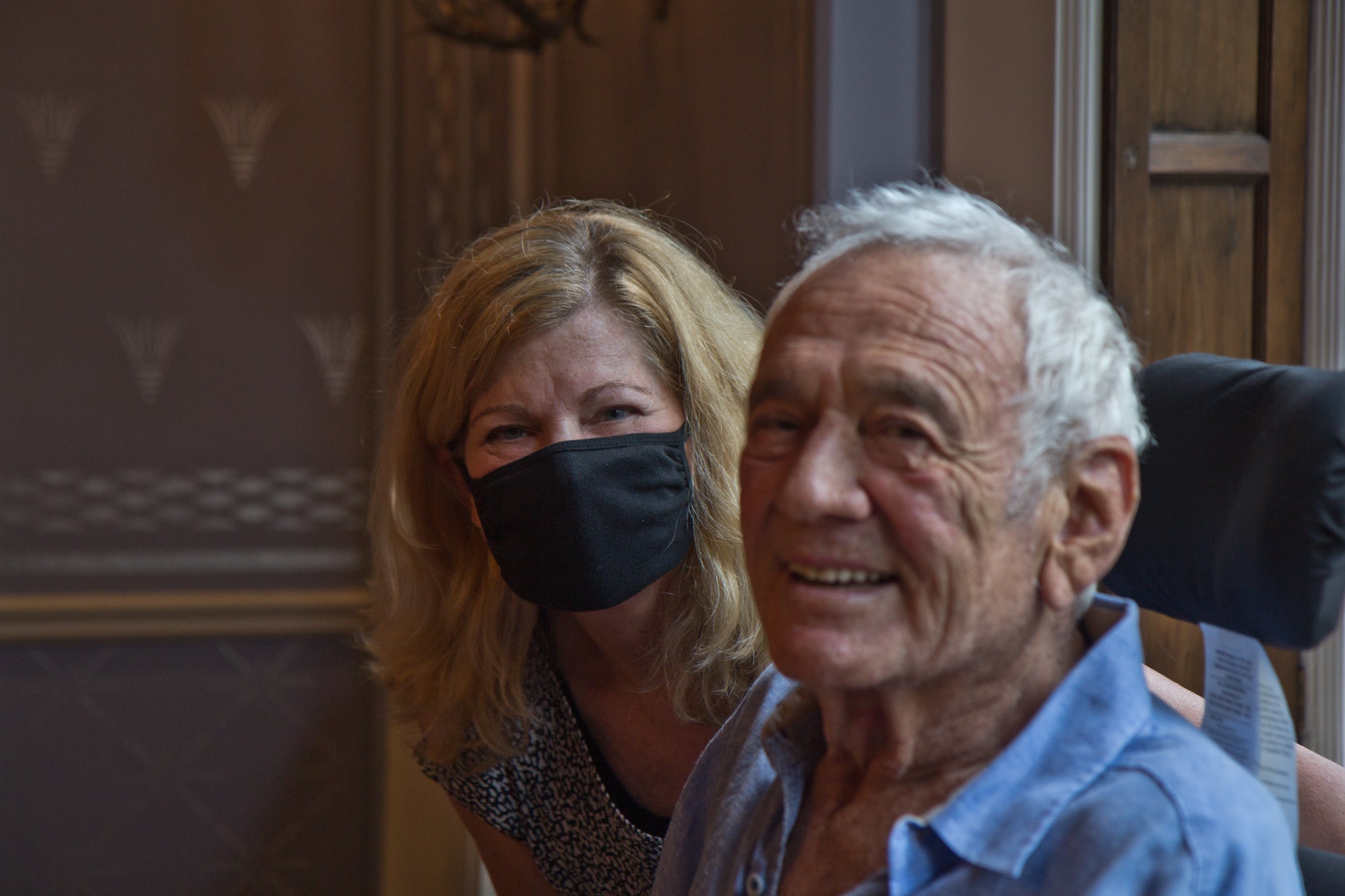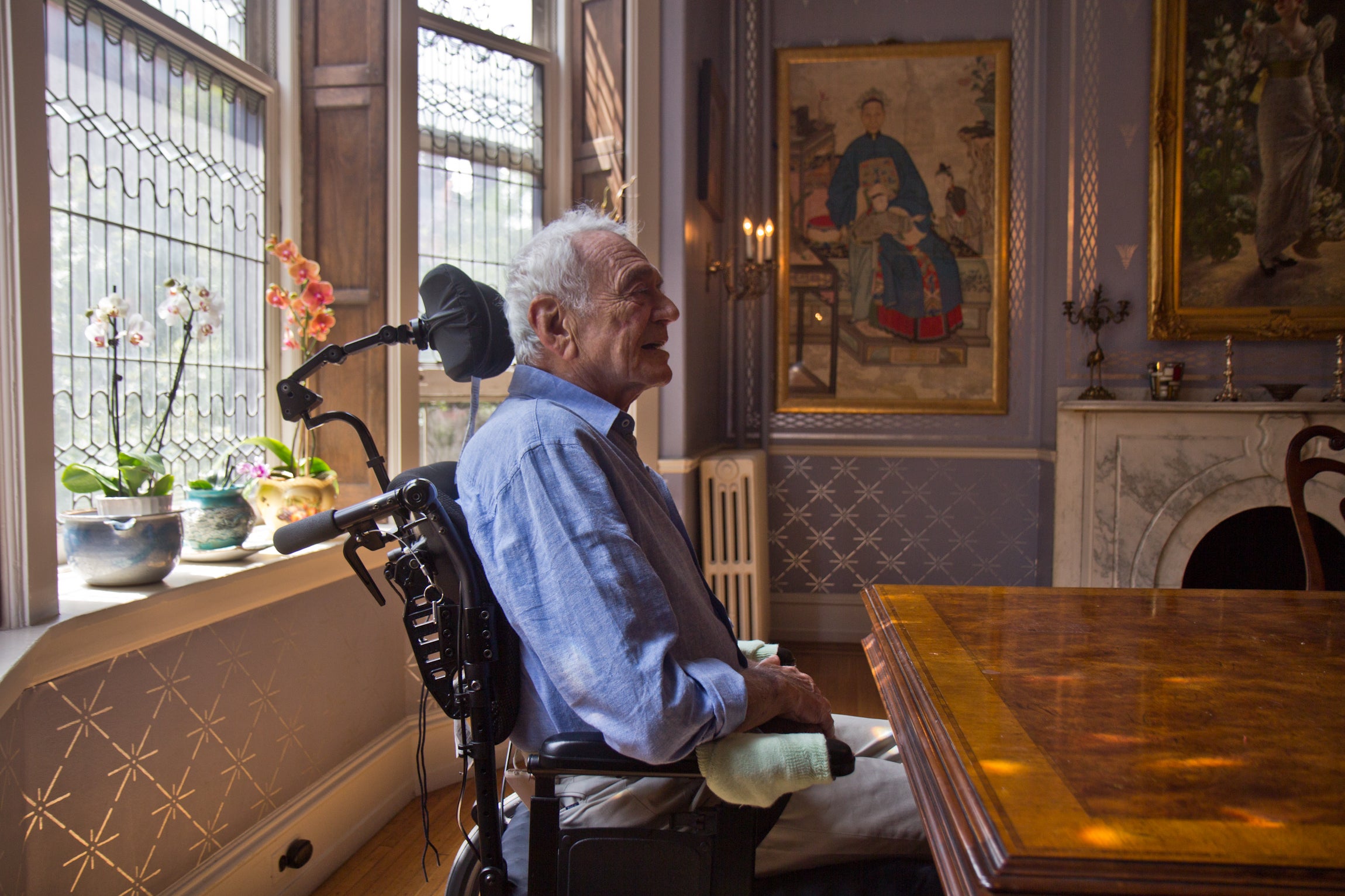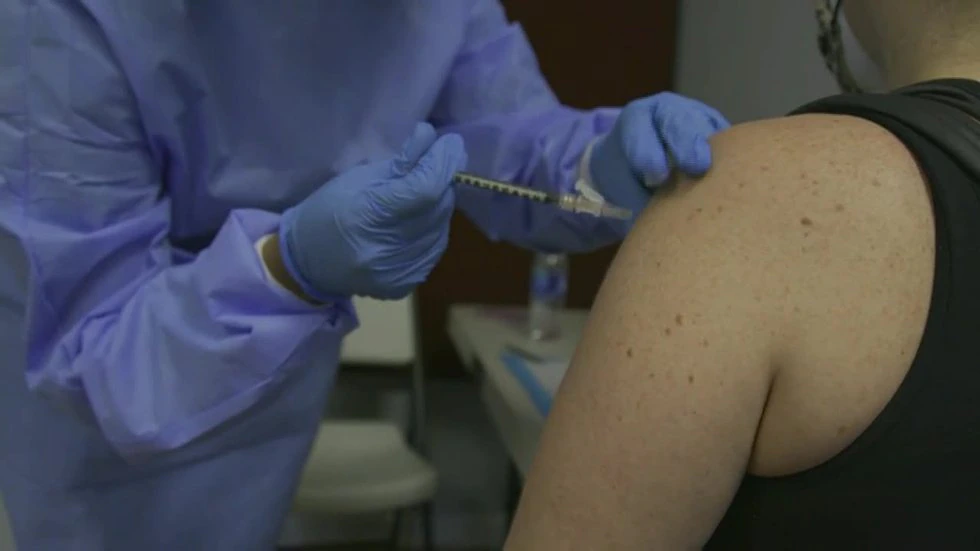COVID-19 almost killed Philly man 3 times. Somehow, it didn’t
Getting back to his lively self
Surrounded in his Rittenhouse Square home by his wife, his daughters and, when he’s lucky, his grandchildren, Avram Woidislawsky is healthy enough now to crack a few jokes.
On a recent afternoon, while outside for a brief constitutional to exercise his legs with his physical therapist, he came across two brides taking wedding photos. He maneuvered his walker over to them and insisted he pose for a photo with them.
“I told them, ‘Put this picture in front of your book!’”
Woidislawsky, who is Jewish, was born in Russia. His family had been living in Poland, but fled after the Germans invaded at the start of World War II. They were forced to constantly move from town to town as Hitler got closer and closer. After the war, he moved to Poland, then Israel, where he spent most of his childhood. When he came to America, he worked as a car mechanic, a carpenter and a gas station attendant. He has since done quite well for himself as a real estate developer and owner of a large painting company.

While hospitalized, he even bought and sold a building from his bed.
“I love business,” he said. “I just love life!”
Physically, he is still very weak. Many patients who spend long periods in an intensive care unit, for COVID-19 or any other reason, suffer from post-ICU syndrome. Many still require oxygen machines for proper lung functioning once they return home; others require speech or language therapy due to damaged vocal cords, as Woidislawsky’s were. Many wind up feeling depressed or anxious. Most need some physical therapy to build strength in deconditioned muscles.
“He didn’t move any muscle in his body,” said Bralow, his doctor. “His eyelids, his finger.”
Bralow said that now it’s typical for patients who are intubated to be taken out of their paralysis for a few minutes each day to move their bodies around a little and avoid such severe deconditioning of the muscles.
But Woidislawsky’s oxygen levels were so low, they didn’t want to agitate him.

He’s also still in a lot of pain from a giant bed sore he developed — a 12 inch-by-12 inch open wound. Erez said handling his pain medication was one of the family’s biggest struggles: he needed it to feel better, but the family was convinced it was making him mean and depressed.
“When he was in pain, it was difficult for him to fight. So it was this constant — pain, get better, pain, get better,” she recalled.
Now, he gains strength each day doing physical therapy. He’s motivated to walk on his own and go to the office again, so he works hard at it.
The results are incredible, Bralow said. She treats a lot of people after they’ve been critically ill.
“You can come home and say, ‘My life is over, I can’t walk across the room anymore,’” she said. “And they just curl up and that’s the end of it. And he’s not having any part of that.”




